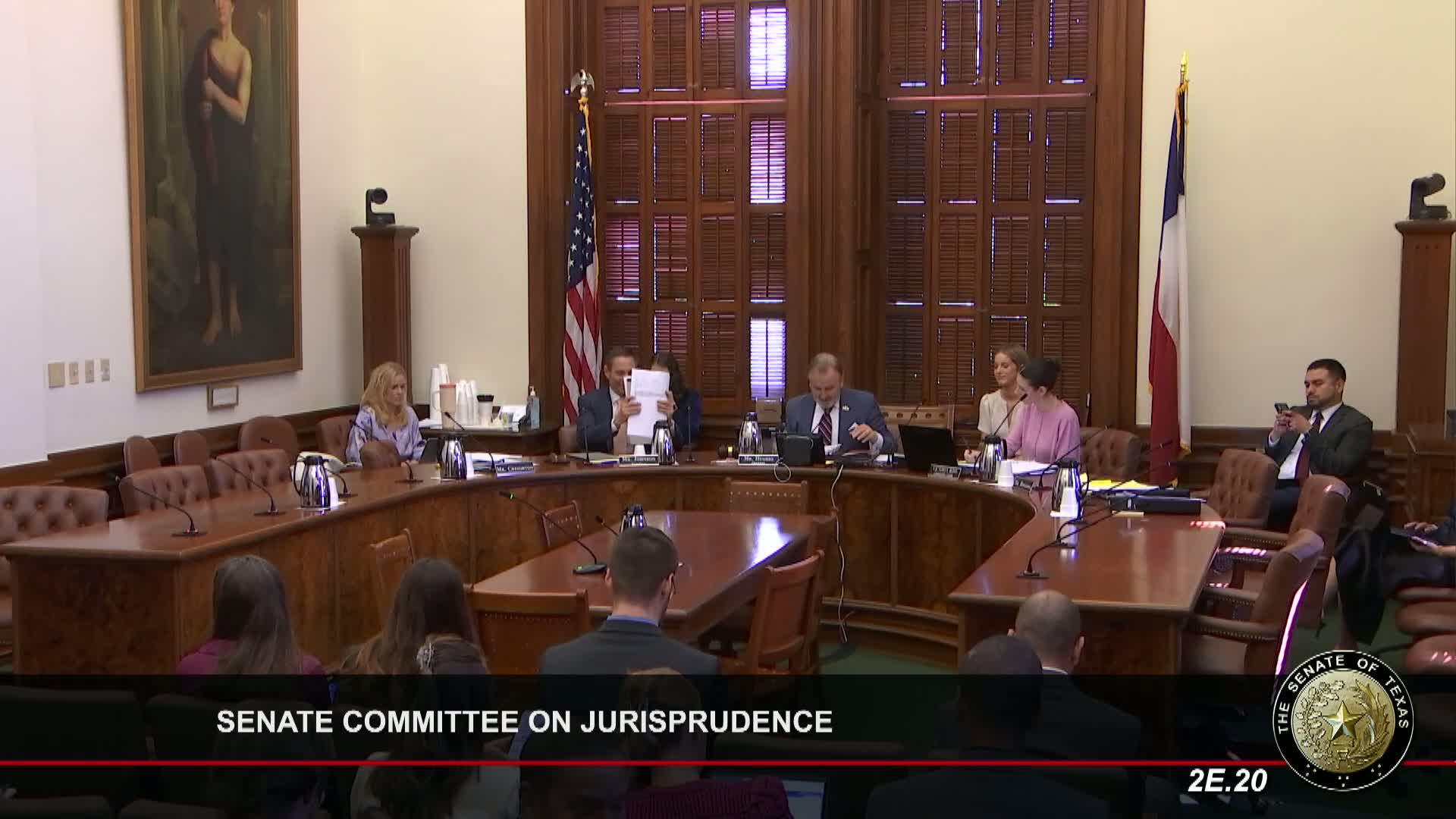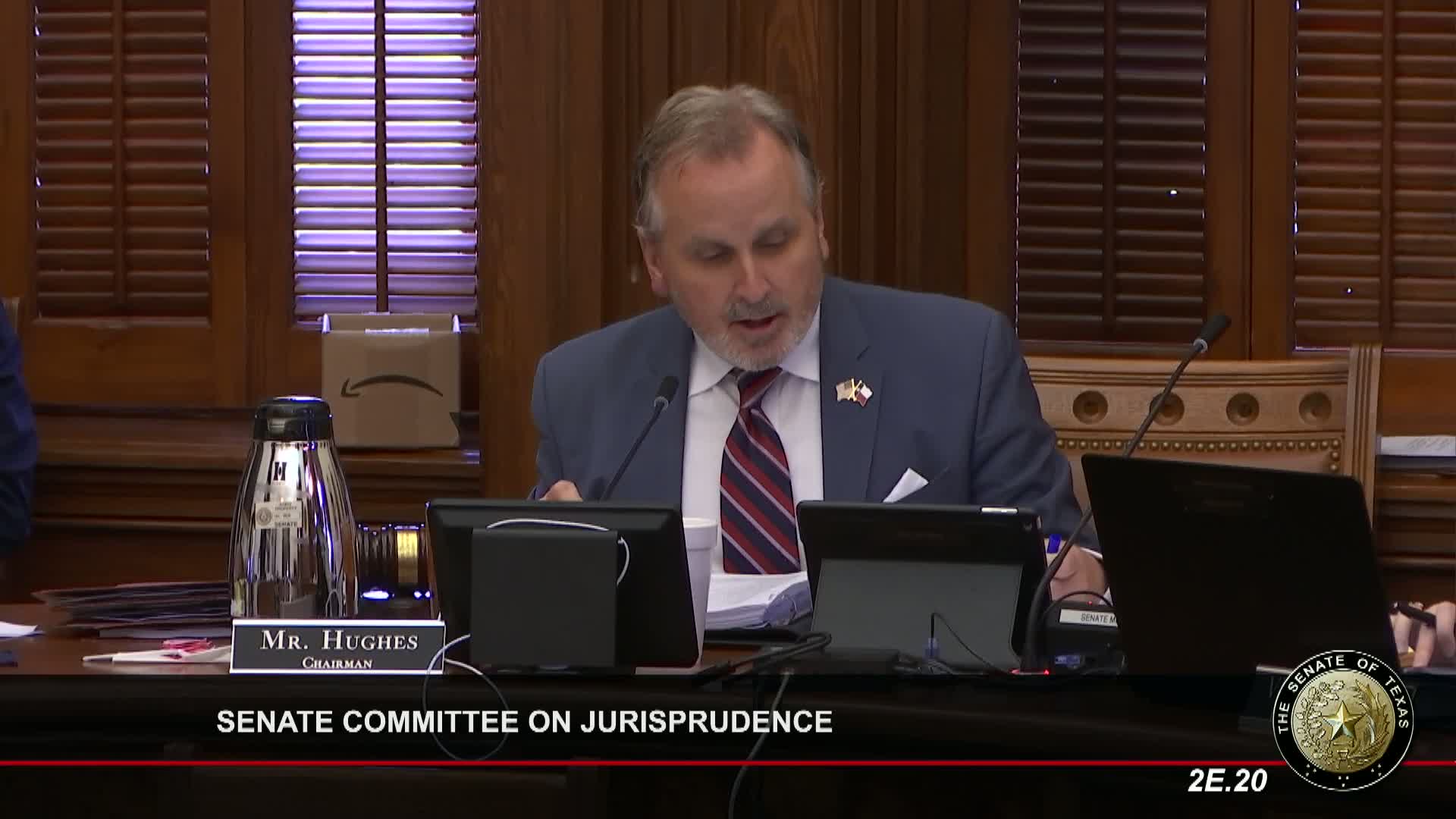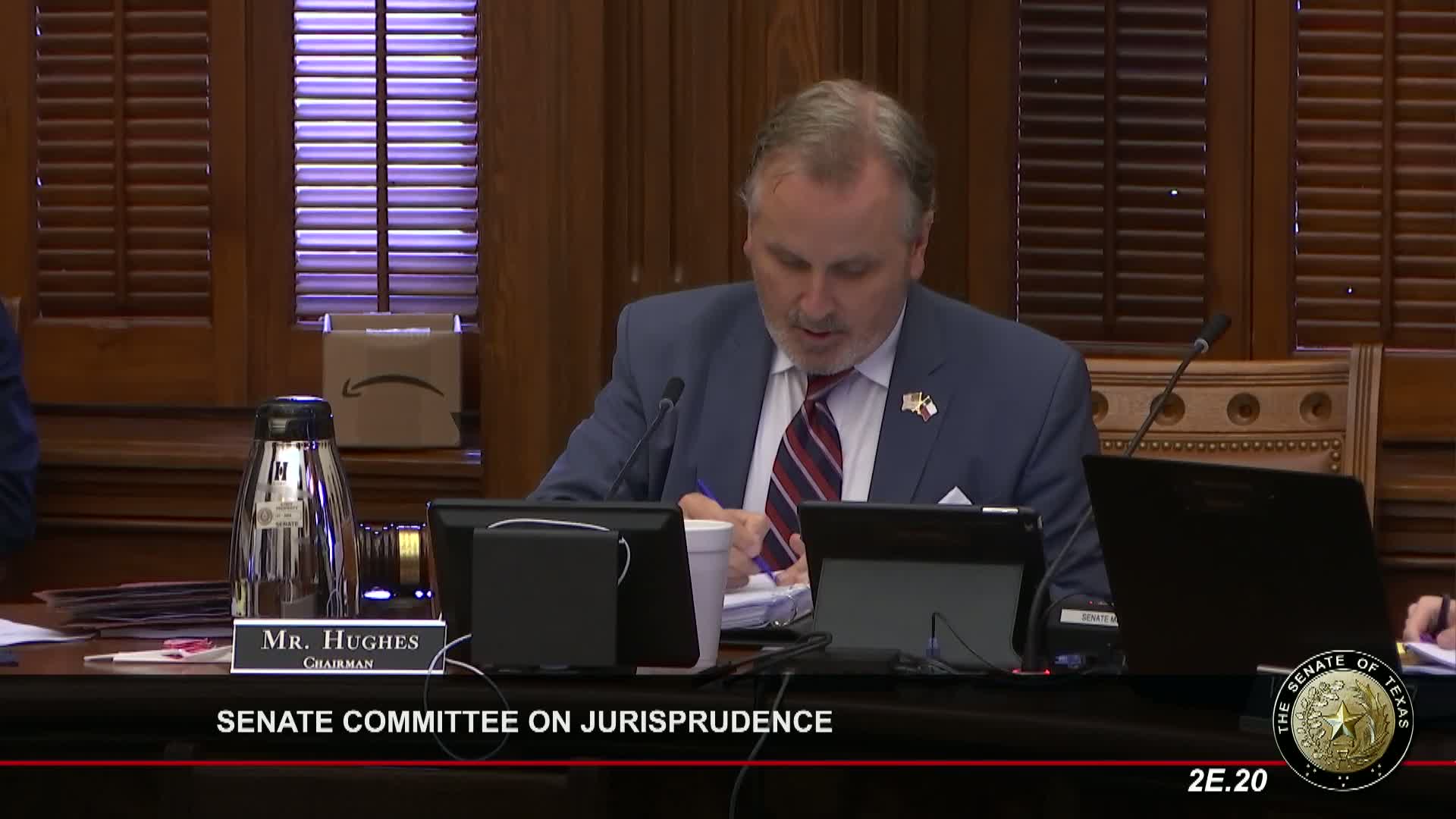Article not found
This article is no longer available. But don't worry—we've gathered other articles that discuss the same topic.

Senate committee hears wide-ranging testimony on bill to limit court-ordered reunification "therapy"

Senate committee considers lowering interest on overdue child support to fixed 5%

